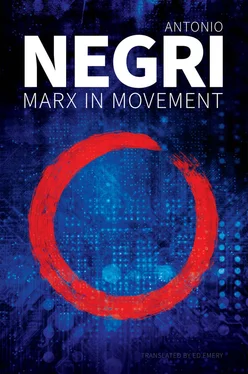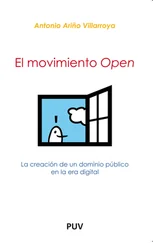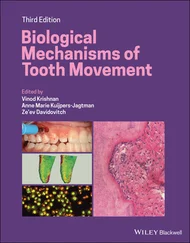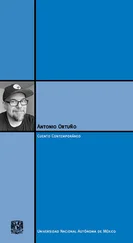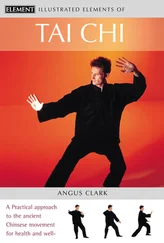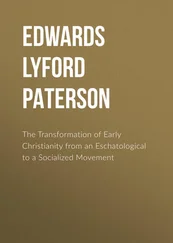104 105
105 106
106 107
107 108
108 109
109 110
110 111
111 112
112 113
113 114
114 115
115 116
116 117
117 118
118 119
119 120
120 121
121 122
122 123
123 124
124 125
125 126
126 127
127 128
128 129
129 130
130 131
131 132
132 133
133 134
134 135
135 136
136 137
137 138
138 139
139 140
140 141
141 143
142 144
143 145
144 146
145 147
146 148
147 149
148 150
149 151
150 152
151 153
152 154
153 155
154 156
155 157
156 158
157 159
158 160
159 161
160 162
161 163
162 164
163 165
164 166
165 167
166 168
167 169
168 170
169 171
170 172
171 173
172 174
173 175
174 176
175 185
Marx in Movement
Operaismo in Context
Antonio Negri
Translated by Ed Emery
polity
Copyright © Antonio Negri, 2022
This English edition © Polity Press, 2022
Polity Press
65 Bridge Street
Cambridge CB2 1UR, UK
Polity Press
101 Station Landing
Suite 300
Medford, MA 02155, USA
All rights reserved. Except for the quotation of short passages for the purpose of criticism and review, no part of this publication may be reproduced, stored in a retrieval system or transmitted, in any form or by any means, electronic, mechanical, photocopying, recording or otherwise, without the prior permission of the publisher.
ISBN-13: 978-1-5095-4425-7
A catalogue record for this book is available from the British Library.
Library of Congress Cataloging-in-Publication Data
Names: Negri, Antonio, 1933- author.
Title: Marx in movement : operaismo in context / Antonio Negri ; translated by Ed Emery.
Description: Cambridge, UK ; Medford, MA : Polity Press, [2021] | Includes bibliographical references. | Summary: “A leading Marxist theorist analyses the changing nature of work”-- Provided by publisher.
Identifiers: LCCN 2021008265 (print) | LCCN 2021008266 (ebook) | ISBN 9781509544233 (hardback) | ISBN 9781509544240 (paperback) | ISBN 9781509544257 (epub) | ISBN 9781509547654 (pdf)
Subjects: LCSH: Marxian economics. | Labor. | Socialism. | Marx, Karl, 1818-1883.
Classification: LCC HB97.5 .N3998 2021 (print) | LCC HB97.5 (ebook) | DDC 335.4/11--dc23
LC record available at https://lccn.loc.gov/2021008265LC ebook record available at https://lccn.loc.gov/2021008266
The publisher has used its best endeavours to ensure that the URLs for external websites referred to in this book are correct and active at the time of going to press. However, the publisher has no responsibility for the websites and can make no guarantee that a site will remain live or that the content is or will remain appropriate.
Every effort has been made to trace all copyright holders, but if any have been overlooked the publisher will be pleased to include any necessary credits in any subsequent reprint or edition.
For further information on Polity, visit our website: politybooks.com
Introduction Marx in operaismo , a Long Road
In operaismo [workerism], *the reading of Marx is done from a particular viewpoint, which is that of the class struggle, and this means that such a reading takes as its starting point the cognitive interest of communist militants involved in the class struggle. Marx is, as it were, an open book from which processes of inquiry [ inchiesta ], theoretical research and political intervention by communists can draw their tools, which change with the passing of time in the long continuity of revolutionary political excavation. In workerism Marx is addressed in an open reading; his books are periodically selected or privileged when they are found to be particularly relevant to the development of the class struggle and to the changes that take place in its composition.
I can start from an set of initial questions. What is workerism’s relationship to history? What is the ‘historical materialism’ of workerism’s key writers? The answer is simple: in workerist writings you do not find any teleological, finalist or positivist historicism – the kind of historical view that points to the victory of the working class as necessary, close at hand, and inscribed in the nature of working-class struggle. History is the historicity of its subjects, seen as being in a state of continuous transformation, which is based on transformations in living labour – in its relationship with machines and with cooperation; and another thing that needs to be considered is the subjectivation and accumulation of the institutions that represent the composition of the working class at any given time.
If one relates the practice of this materialist approach to the reading of particular texts by Marx, one finds a shift right at the origins of workerism. At the beginning the tendency was to focus on volume 2 of Capital , which analyses the relationship between factory and society and the transition from extraction of surplus value in the factory to its accumulation at the level of social circulation. Then there was a shift to volume 3 of Capital , where the analysis moves up, to the level of the abstraction of value and to analysis of globalization; and it was followed by a shift to volume 1 of Capital ; to the Grundrisse , where the historical theme of the subjectivation of struggles is the principal starting point of analysis; and also to the pages of the ‘Fragment on Machines’, at a point where analysis led to an identification of cognitive labour and general intellect as being central to the mode of production. In this way workerism was able to enrich itself with a number of points of view that were homogeneous, albeit different, and that enabled it to keep up with the historical changes in the nature of the class struggle.
It is with this freedom that, with the passage of time, the whole of Marx’s teaching is appropriated by workerist writers and put at the service of struggles. In the nascent phase of workerism, Raniero Panzieri, writing about the concept of social totalization, invokes Lukács against the perversion of Marxian thought represented by the critical theory of the Frankfurt School. Indeed the latter is seen as being engaged in a quest for equilibrium in what was understood as the plan of capital . Subsequently Mario Tronti rediscovers and popularizes Marx’s inventive concept of class struggle as falling within the concept of capital and of capital’s totalization of the social. The concept of capital is understood as the concept of a relationship in which living labour prevails as a form of movement within the struggle over exploitation. Struggles are the engine of development, and the counterpower of the working class is the destituent soul [ l’anima destituente ] of all capitalist power and the proletarian constituent power [ potenza costituente ] of all revolutionary production. With Romano Alquati, the process of workers’ inquiry gives arms and legs to these early workerist institutions, emphasizing the connection between living labour and the technical composition of capital and beginning to describe analytically the relationship between struggles and machinery in each phase of development of working class subjectivity, while Sergio Bologna and Mauro Gobbini, already in this first cluster of theoretical and political work, are highlighting the form of the relationship that the life and the ethical and ideological–political behaviours of the proletariat (in the social and political composition in which we analyse them) establish with the technical dimensions of labour of the proletariat in the history of the struggles. The political composition of skilled workers is thus defined in relation to their relative independence of the control exercised by the employer (in the machine system), whereas the (Taylorized) mass worker would be completely crushed in the new technical composition of Fordism. In this way, the methodological understandings contained in E. P. Thompson’s Making of the English Working Class are actualized in the eighteenth- and nineteenth-century transition to the highest and most extreme form taken by industry. All this was in the 1960s.
Читать дальше
